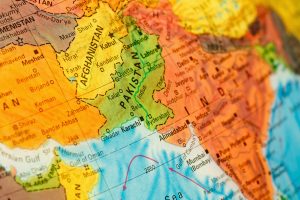Former Pakistani Senator Afrasiab Khattak has accused the country’s military of systematically exploiting Afghan refugees for decades, using them as “cannon fodder” in regional conflicts while fueling a lucrative “war economy” that benefits top generals.
Speaking at a virtual conference organized by Displaced International on Monday, marking four years since the Taliban’s return to power in Kabul, Khattak argued that Pakistan’s refusal to sign international refugee conventions or enact domestic refugee laws was a deliberate strategy to avoid accountability.
“From the 1980s, Pakistani generals kept themselves free of these restrictions,” Khattak said, referring to the absence of refugee protections. “Aid for refugees was diverted to train mujahideen. Refugees became holy warriors. This has been big business for the military from General Zia-ul-Haq to the current leadership,” he said.
Khattak described the Taliban as a long-standing “project” of Pakistan’s military, trained and nurtured within the country. Despite official denials, he insisted ties remained strong, dismissing claims that the Afghan Taliban and Tehreek-e-Taliban Pakistan (TTP) are separate entities.
“They are one and the same,” he said, alleging that Afghan Taliban fighters were deployed to Pakistan.
He pointed to recent military operations in Pakistan’s Bajaur district, bordering Afghanistan’s Kunar province, which have triggered fresh displacement.
“The military that claims to have stood up to India has ceded territory to the TTP,” Khattak said.
“This is not incapacity, it’s a lack of intention.” he added.
Labeling Pakistan’s generals as “war contractors,” Khattak accused them of perpetuating instability for strategic gain. He cited Army Chief General Asim Munir’s recent back-to-back visits to Washington as evidence of continued military diplomacy, drawing parallels to the eras of Zia-ul-Haq and Pervez Musharraf.
He also warned of expanding “Talibanization,” with Pakistani religious seminaries opening branches in Afghanistan – potentially exporting extremism into Central Asia.
Khattak slammed global powers for prioritizing geopolitical competition over Afghanistan’s humanitarian crisis. “China is focused on mineral resources, Russia has recognized the Taliban without investing, and the U.S. and others are letting them float politically,” he said.
“This is dangerous,” he warned. “If Afghanistan is left like this, 9/11-type events can happen again.” He highlighted the growing threat of the Islamic State Khorasan Province (ISKP) and TTP networks in Pakistan, raising risks of renewed global terrorism.
Khattak urged international actors to end their “competition at the cost of Afghan civilians,” arguing that the post-9/11 “War on Terror” eroded human rights in favor of a security-first approach.
“War on Terror minus human rights does not promise a good future for anyone,” he said.
He also warned of Pakistan’s democratic backsliding, suggesting the military may push constitutional changes to consolidate power under a strengthened presidency – a move foreign powers might favor for “one-window” dealings but that would further weaken governance.
His final appeal targeted Washington, Beijing, Moscow, and European capitals: “Change these policies of competition at the cost of human rights in Afghanistan – because they will determine the fate of human rights in the entire world.”

































